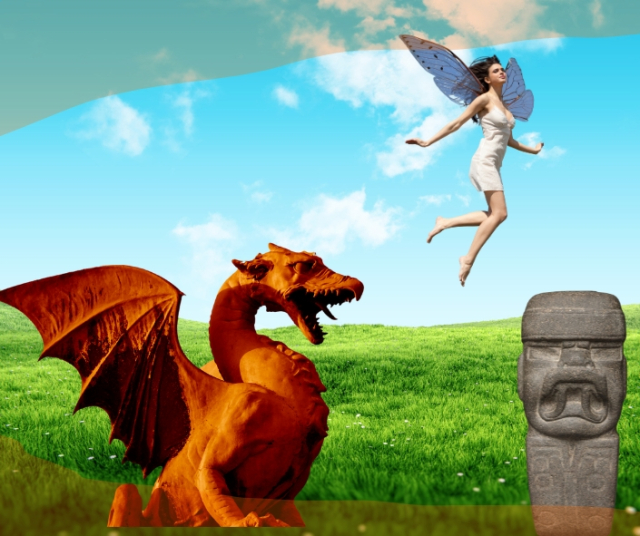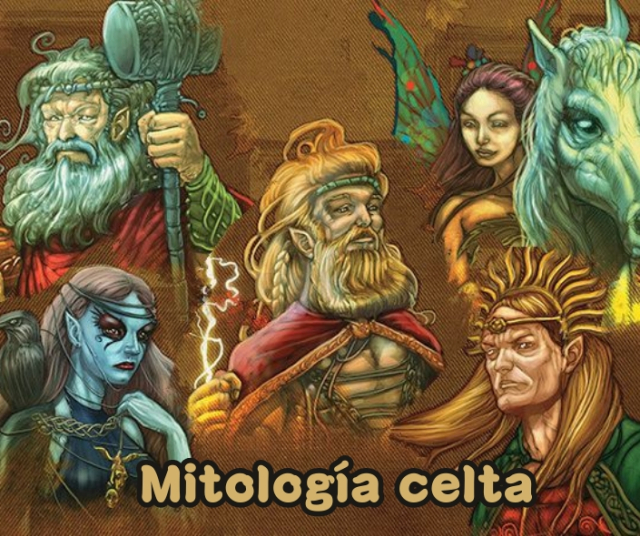Celtic mythology is a rich and fascinating set of religious beliefs, stories, and practices that emerged among the ancient Celtic peoples of Western Europe. Over the centuries, these mythical traditions have left an indelible mark on the culture and society of the region, and continue to exert a lasting influence on the collective imagination of the modern world. Join us on a journey through the mysterious forests and valleys of ancient Celtia as we explore the myths and legends that shaped their unique worldview.
Origins and historical context of Celtic mythology.
The origins of Celtic mythology date back to the ancient Celtic tribes who inhabited Western Europe during the Iron Age. These peoples, who shared a common language and culture, worshiped a variety of gods and goddesses who personified important aspects of natural and human life. As the Celts expanded and migrated throughout Europe, they brought their religious beliefs and practices with them, enriching and diversifying their rich mythological tradition.
During the Roman era, Celtic beliefs came into contact with the cultural and religious influences of the Mediterranean world, giving rise to a unique synthesis of myths and rituals. Despite the Roman conquest of much of Celtic territory, many of the ancient traditions and beliefs survived and continued to thrive in the outlying regions of the British Isles, Ireland and Gaul.
The gods and goddesses of Celtic mythology.
The Celtic pantheon is populated by a wide variety of gods and goddesses, each with their own personality, attributes, and dominion over specific aspects of the natural and human world. Among the most prominent gods are:
- Lugh: The god of the sun, craftsmanship and martial skills, considered a prominent figure in Irish Celtic mythology.
- Dagda: A benevolent god associated with fertility, abundance and magic, known for his great strength and wisdom.
- Morrigan: A warrior goddess associated with death, battle, and prophecy, often depicted as a raven.
- Brigid: A triple goddess associated with poetry, healing, and metalworking, revered in both Irish and Welsh mythology.
- Cernunnos: A god of nature and fertility, depicted as a man with deer antlers, associated with wildlife and hunting.
These are just a few examples of the numerous gods and goddesses that form part of the rich Celtic mythological tapestry, each with their own history and dedicated cult.
Mythical creatures and Celtic legends.

In addition to the gods and goddesses, Celtic mythology is populated by a variety of mythical creatures and supernatural beings that inhabit the forests, rivers and mountains of Celtic land. These creatures include:
- Fairies: Magical, ethereal beings that inhabit the forests and hills, known for their supernatural beauty and their ability to bestow blessings or curses on mortals.
- Sidhe: A race of supernatural beings who reside in the sacred mounds and hills of Ireland, considered guardians of the invisible realms.
- Selkies: Sea creatures that can shapeshift between human and seal, known for their captivating beauty and melancholic song.
- Dragons: Powerful winged beasts associated with strength, power and wisdom, often guardians of hidden treasures and ancient knowledge.
These creatures and many others are part of rich Celtic folklore, filling the natural world with a sense of wonder and mystery.
The wheel of the year and Celtic festivals.
Celtic mythology is intrinsically linked to the cycle of the seasons and the rhythms of nature, reflected in the celebration of a series of seasonal festivals known as the Wheel of the Year. These festivals mark changes in the agricultural cycle and the seasons of the year, and are associated with a variety of religious practices and folk traditions.
Some of the most important Celtic festivals include:
- Samhain: Celebrated on October 31, Samhain marks the end of summer and the beginning of the Celtic New Year. It is a moment of transition between the world of the living and the world of the dead, and is associated with rituals of communion with ancestors and the celebration of the harvest.
- Imbolc: Celebrated on February 1, Imbolc marks the beginning of spring and is associated with the goddess Brigid and the renewal of life in nature. It is a time to honor the rising light and prepare for the rebirth of the earth.
- Beltane: Celebrated on May 1, Beltane marks the beginning of summer and is associated with fertility, love and passion. It is a time to celebrate the union between the god and goddess and the renewal of life in nature.
- Lughnasadh: Celebrated on August 1, Lughnasadh marks the beginning of autumn and is associated with harvest and abundance. It is a time to give thanks for the blessings received and prepare for the descent of the sun.
These festivals and other seasonal events form part of the rich cultural and religious tapestry of the ancient Celts, and continue to be celebrated by many modern pagans and followers of Celtic traditions.
The legacy of Celtic mythology in modern culture and society.
Although Celtic mythology has lost much of its influence in modern Europe due to the Christianization and Romanization of the region, its legacy remains evident in a variety of aspects of contemporary culture and society. The stories and symbols of Celtic mythology have been revived and reinterpreted in modern literature, art, music and film, and continue to inspire people of all ages and backgrounds.
For example, the image of the three-leaf clover and the Celtic triskelion have become iconic symbols of Celtic culture and are commonly associated with luck and protection. The stories of heroes such as Cú Chulainn and Queen Medb have been adapted into novels, plays and films, keeping the memory of these legendary characters alive. Even Celtic music, with its energetic rhythm and haunting melodies, remains popular around the world and has influenced a variety of contemporary musical genres.
Additionally, the resurgence of paganism and neo-paganism in the modern world has led to renewed interest in Celtic mythology and the spiritual traditions associated with it. Many contemporary practitioners of witchcraft and druidism find inspiration in the ancient rituals and beliefs of the Celts, adapting them to the needs and circumstances of the modern world.
Celtic mythology is a treasure trove of stories, symbols and traditions that continue to exert a significant influence on modern culture and society. Through their myths and legends, the ancient Celts invite us to explore the mysteries of the natural world and the ancient wisdom that lies deep in the earth. Although their gods and goddesses may have fallen into oblivion, their spirit lives on in the imagination and hearts of all those who seek to connect with the roots of the earth and the cosmos.






